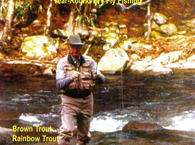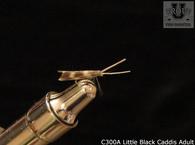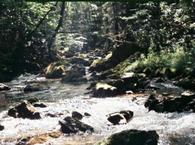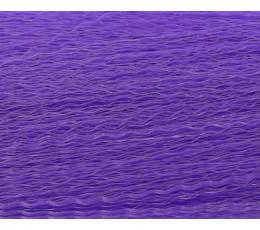2. The vegetation along a trout stream is also a clue . For example, hemlocks will leave tannic acid in the water and as a result the tell tale tea color will be observed. This will cause a stream to be less productive. Fertile trout streams will have healthy vegetation along the banks and the algae will be more plentiful.
3. The decomposition of organic mater found in bogs will leach humic acid into the trout water making it somewhat tea colored and less productive, while clear mountain streams will be more productive.
4. The trout stream with a bottom made of different size rocks, nooks and crannies will be more productive than a trout stream covered with sand or gravel.
5. Trout streams with springs, or
tail waters from impoundments will remain cooler in the summer causing more trout to survive the stress of heatand continue to grow all year long.




